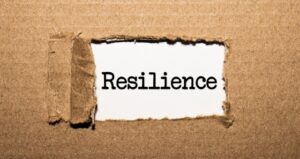
Using Teaching Practices to Support Student Learning and Well-Being
*This article first appeared in the Teaching Professor on July 8, 2019. © Magna Publications. All rights reserved. College student mental health is currently receiving a great


*This article first appeared in the Teaching Professor on July 8, 2019. © Magna Publications. All rights reserved. College student mental health is currently receiving a great

While attending a student success workshop a few years ago and gaining strategies to connect with students, I thought, “What about how hard I work

There’s that wonderful moment upon stepping into your first classroom ready for all its delights, discoveries, and even disputes when you think to yourself that

Tough times are no stranger to higher education—financial challenges, enrollment declines, mental health issues, and the erosion of tenure to name just a few. If

With the uncertainty in future university practices brought by the COVID-19 pandemic, one thing is certain: Helping students develop the skills to tend to their

While I have read the book The Four Agreements five times, I had not perused this book since I accepted a professorship in 2012. When

After reading and hearing about the physical and mental benefits of meditation, I decided to take up the practice several years ago. This led to some discussions with colleagues at work, which eventually morphed into the idea of using mindfulness in the classroom. Mindfulness is a way to pause and reflect on the here and now. To be fully present in what is happening in the present, without worry about the future or past. The idea is that teaching this philosophy and using activities and practices in the classroom should allow students to release tension and anxiety so they can focus on the material in the classroom. Rather than coming to my biology class lamenting over the test they just took in another class, worrying about the homework, or making a check-list of “to dos”, the student can release that tension become present with my biology course.

When we consider the multiple life challenges and wellness issues faced by college students, it is safe to assume that the impact of trauma is manifest in every classroom. Trauma, whether experienced as a singular event or as a chronically unsafe environment, shapes how survivors perceive their vulnerability in the world and challenges their ability to cope. When we pursue greater understanding of the effects of trauma on individuals and the systems in which they operate, there is also a growing awareness that trauma is far more prevalent than we might have imagined. In fact, recent studies indicate that exposure to trauma is a widespread experience.

There’s a mental health crisis on today’s college campuses. According to research conducted by the National Alliance on Mental Illness: one in four college students have a diagnosable illness, 40 percent do not seek help, 80 percent feel overwhelmed by their responsibilities, and 50 percent have become so anxious that they struggle in school.

Students are stressed. A recent survey revealed that mental health issues, including severe stress, are on the rise. In 2016, 65% of students reported experiencing overwhelming anxiety during the previous 12 months, which is an increase of more than 7% from the 2013 data (National College Health Assessment, 2016). We also know from decades of research that arousal levels are strongly related to performance: not enough arousal and you don’t perform well, but too much arousal (which becomes stress/anxiety) and your performance is negatively impacted (Colman, 2001). Therefore, anything we can do as instructors to reduce students’ stress should have a positive impact on their mental health and academic performance.
Get exclusive access to programs, reports, podcast episodes, articles, and more!